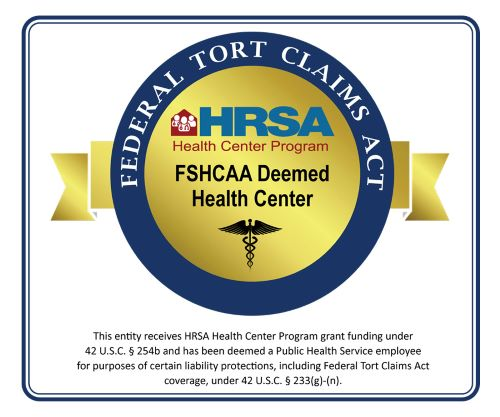To Buy Colchicine Online Visit Our Pharmacy ↓
 Evolving Research: Colchicine Beyond Gout Treatment
Evolving Research: Colchicine Beyond Gout Treatment
Historical Use and Mechanism of Colchicine
Colchicine, a compound medication with a storied history, has roots in ancient Egypt, where it was derived from the autumn crocus to treat rheumatic pain. This 'magic' elixir works by inhibiting microtubule polymerization, a mechanism vital in treating gout attacks. By influencing the mobility of white blood cells, colchicine dampens the cycle of inflammation, lessening pain and swelling. Untill the 20th century, it remained a trusted script for the agony of gout. Over time, however, researchers began to reevaluate its narrow focus. With its elixir-like versatility, colchicine's story evolved, transitioning from a niche treatment to a compound fueling new medical explorations.
Surprising New Roles in Cardiovascular Health

Colchicine, traditionally a staple in gout treatment, is now making waves in cardiovascular health. Researchers have discovered that its anti-inflammatory properties can beneficially impact heart disease. Accumulating evidence suggests this modest compound medication might reduce inflammation that aggravates cardiovascular conditions, offering a promising route for people with heart ailments. In pivotal studies, low-dose colchicine has been shown to significantly reduce the recurrence of heart attacks. Its role doesn't end there; it also helps in decreasing arterial inflammation, paving the way for therapies untill now unimaginable.
As patients pop their "magic mouthwash" for inflammation, it's ironic how this age-old elixir has sidestepped into a new script in heart health. Emerging studies hint that colchicine might lower the risk of major cardiovascular events, demonstrating versatility that was once overlooked. For patients at risk, it could mean fewer heart complications and a better quality of life—the ultimate goal in pharmacological innovation. Researchers are excited about this shift, with hope that colchicine will eventually become a household name not just for gout but also for heart health advancements.
The medical community is taking note, and the exploration of colchicine's potential is expanding rapidly. This isn't a pill mill situation; it's backed by rigorous studies and clinical trials, redefining how we view this ancient medication. As the research unfolds, the anticipation builds around its long-term implications and benefits. It's not just about treating illness anymore; it's about reshaping treatment paradigms with colchicine, demonstrating its potential as a staple in cardiovascular care.
Technological advancements and a better understanding of the mechanisms within our bodies make this an exciting time for such developments. With ongoing research, promising results are anticipated soon, and the future looks bright for colchicine in cardiovascular health. We are just beginning to uncover its full potential, and as the saying goes, 'watch this space'—a space where colchicine may become part of everyday cardiovascular care protocols.
Anti-inflammatory Effects: Beyond Arthritis Relief
Colchicine has long been regarded as a valuable script in managing gout, but recent research has unveiled its broader anti-inflammatory potential. Its unique mechanism, modulating immune responses, has sparked interest in diverse medical fields. Unlike others on the counter, colchicine acts as a potent comp in controlling inflammation that underlies various chronic ailments. This trait makes it a candidate for broader applications in medical conditions previously thought unrelated. As we delve deeper, the landscape of colchicine's utility is definitely expanding beyond its traditional boundaries.
Potential in Treating Autoimmune Diseases

Colchicine, a comp medication found in the prescription records of many traditionally for gout, is now being investigated for its efficacy in autoimmune diseases. Emerging studies highlight its potential to modulate immune system responses, possibly offering relief where mainstream treatments fall short. This historical elixir has sparked renewed interest as an adjunct therapy aiming to tame inflamed pathways without presenting the same pill burden, as seen with other options. This avenue of research definitely requires further exploration to understand its full scope and capabilities.
Investigating Colchicine's Role in Cancer Therapy
In the evolving landscape of cancer therapies, colchicine's historic use took an unexpected turn, capturing the scientific community’s attention. This ancient compound medication, traditionally haild for its prowess in treating gout, has shown potential in oncology for hindering cancer cell division. Researchers are now scripting new directions, exploring how its anti-mitotic properties could be key in disrupting tumor growth.
Recent studies demonstrate that colchicine can significantly hamper metastasis, making it an intriguing option in cancer treatment protocols. As scientists delve deeper, they face the occasional challenges and triumphs that come with pioneering new applications for established medications. This compound's dual abilities—as both a botanical elixir for inflammation and a potential cancer opponent—have certainly rejuvenated interest in its diverse pharmacological capacities.
Yet, as with any novel application, the pill burden of translating benchside discoveries to bedside therapies is substantial. Safety trials and determining precise dosages must be meticulously managed to seperate fact from optimistic speculation. As researchers continue to examine and test, practical applications of colchicine in cancer therapy hold significant promise, warranting further investigation and patient trials. The journey through Pharm Land of cancer research is punctuated with both anticipation and rigor, laying foundations for future medicinal strategies.
Future Prospects and Ongoing Research Developments
As research continues to expand, colchicine is becoming a pivotal player in various medical fields. With its potential benefits in cardiovascular health already making headlines, what lies ahead seems promising. The evolving landscape of health sciences encourages us to persue innovative treatments, transforming this once humble gout remedy into something far greater. Excitingly, ongoing clinical trials aim to explore its wider application, possibly pointing to it as a comp for managing complex diseases like cancer.
Current studies are investigating colchicine's multifaceted character, pushing the boundaries beyond traditional uses. Researchers are keen to examine its interplay with other generics and the implications of its anti-inflammatory properties across different ailments. As we navigate this new terrain, we must consider how to safely integrate this valuable script into broader therapeutic frameworks, potentially changing countless lives.





